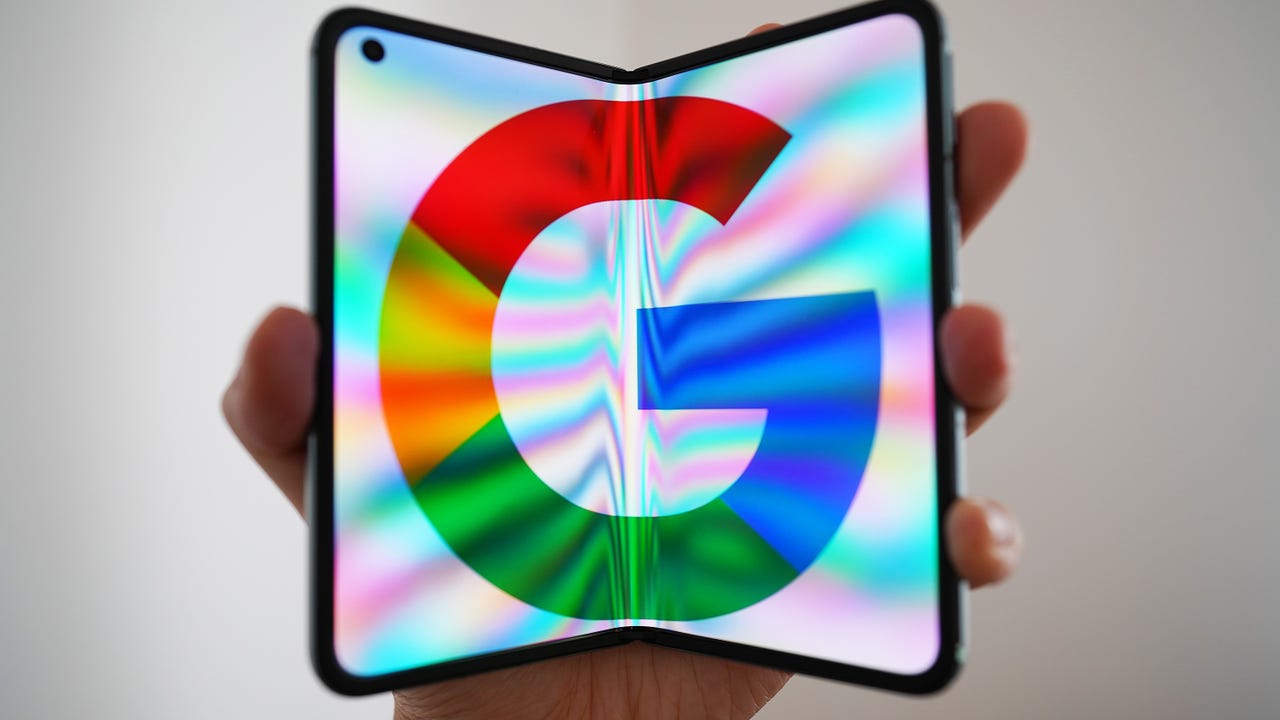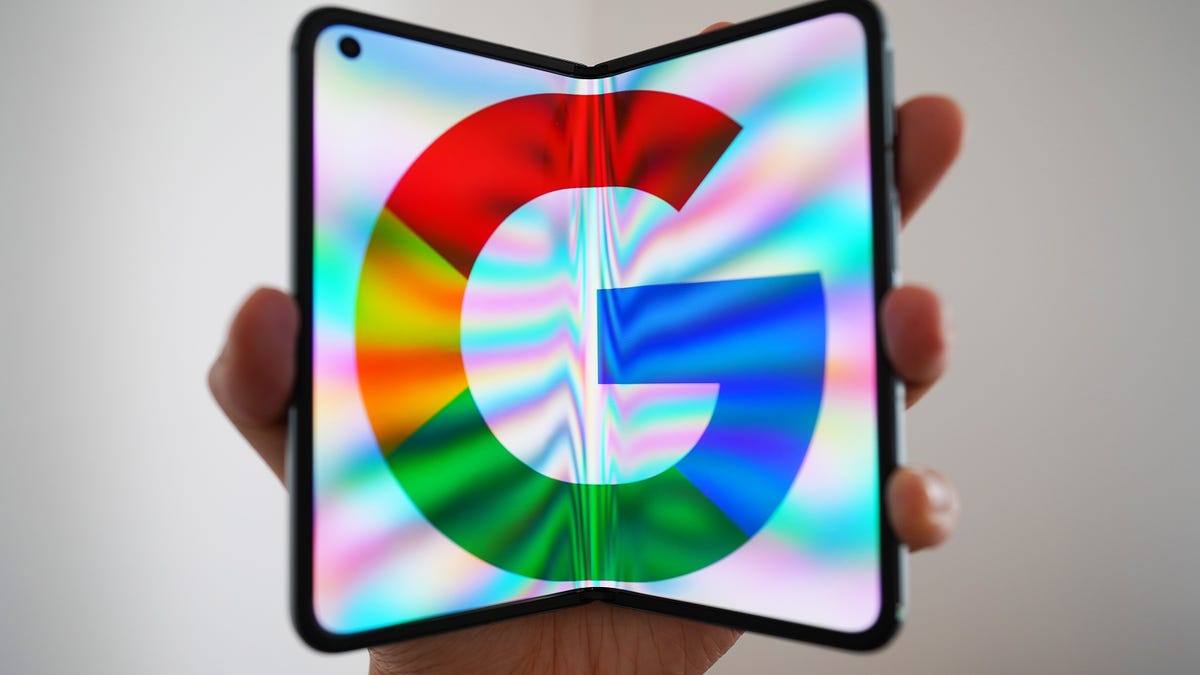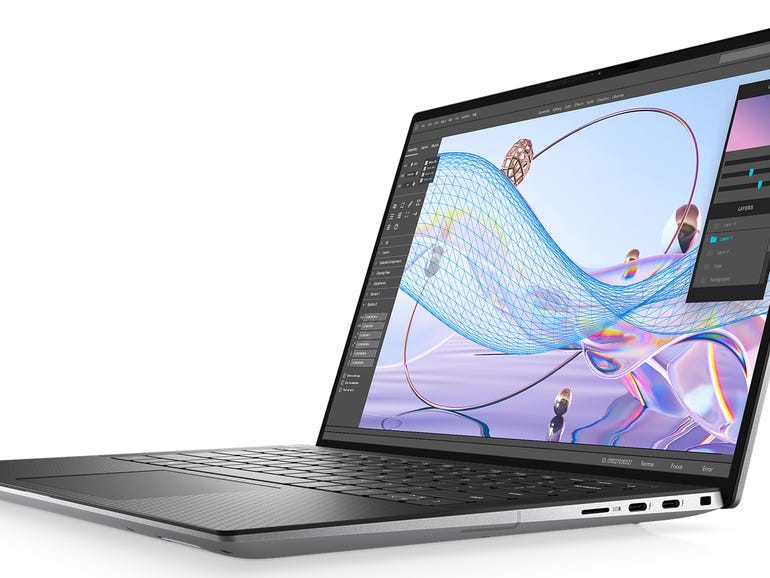7 Google products to expect in 2023: Pixel Fold, Pixel 7a, and more

The clock is ticking for what is arguably Google’s most significant launch event of 2023, Google I/O on May 10.
As has often been the case with the company’s spring keynote, Google is expected to unveil a fair share of software features across its Android, Chrome, and search platforms, and all the hardware products to take advantage of such.
Also: Google TV adds over 800 free channels. How to access them
But this year, more than any other, sees the search engine giant caught between a rock and a hard place; the rock being Microsoft’s AI dominance with OpenAI and Bing’s resurgence, and the hard place being manufacturers like Samsung who have already debuted their flagship smartphones for the year.
For consumers, developers, and everyone in between, Google in 2023 must deliver products that bring unique, smarter, and better value propositions than its competitors, and the upcoming I/O event is its first big opportunity to do just that.
Also: What is Google Bard? Here’s everything you need to know
See below for a breakdown of every product that’s expected from Google this year, including ones that will be on next month’s docket, and others that will be kept on the back burner for now but should not be forgotten.
While most Android tablet manufacturers continue to fight over specs and numbers, Google’s upcoming Pixel Tablet puts practicality at the forefront — or so we’re told.
The company unveiled its next-gen tablet during its October hardware event last year, touting a Tensor G2 processor, a new nano-ceramic coating that’s reminiscent of porcelain, and a wireless charging dock that turns the tablet into a smart home speaker when not in hand.
Also: The best tablets right now
With the Pixel Tablet, Google is thinking beyond the standard use cases of a handheld slab. And given its software prowess, a seamless entertainment and productivity experience that bests every other Android competitor is within reach. The company is expected to launch the Pixel Tablet during Google I/O.
The Pixel A-series continues to play a prominent role in Google’s mobile lineup, delivering most, if not all, the latest Android software features in a hardware package that compromises just enough to flaunt a competitive price tag.
According to the latest rumor mill, including a note from developer Kuba Wojciechowski, this year’s Pixel 7a will feature an improved 90Hz display and wireless charging, two aspects that trickle down from Google’s more expensive Pixel phones. The 7a will also be powered by the company’s own Tensor G2 chipset.
Also: Pixel phones may be getting a long overdue feature
As for the price, a recent report from 9to5Google suggests that the upcoming model will launch during Google I/O for $499, $50 more than its predecessor. The upcharge comes at a time when consumer spending has stagnated, though Google is justifying the decision by offering an improved feature set while still selling last year’s Pixel 6a at a lower price — $299 if the latest promotions are any indicator.
The Pixel Fold may be the most highly anticipated product from Google this year. The company’s first foldable device is expected to launch during I/O next month and comes at a time when the likes of Samsung, Motorola, Oppo, and other overseas manufacturers are near refinement in terms of shape-shifting hardware.
Also: The best foldable phones you can buy
Besides needing to nail down the dual-screen form factor, all eyes are on Google to deliver an Android experience that can adapt and keep up with the newer range of use cases, which the company has already made inroads into with Android 12L. If the Pixel Fold achieves this seamless switching between inner and outer displays, that alone will give it a leg up against most of the competition.
Perhaps the biggest catch with the Pixel Fold will be its price, as has been the case with every other foldable to date. The latest reports, sourced from leaker Jon Prosser, hint at a $1,799 price tag, matching that of Samsung’s flagship Galaxy Z Fold 4. Stay tuned to Google I/O to learn more.
Google typically releases its flagship, slab-style smartphones during the fall season, and that cadence looks to remain in 2023. This year, the company is expected to launch the Pixel 8 and 8 Pro, succeeding last year’s 7 series.
Also: Google’s Pixel cameras focus on ‘accessible creativity’ with impressive new features
Much of the new Pixel phone’s specifications are still up in the air, though the company may possibly tease the devices during its upcoming I/O conference like how it did with the 7 series last May.
Still, Google will likely focus on camera upgrades, an improved Tensor processor (possibly named ‘Tensor G3′), and new computational features that build on the successes of previous years’ Photo Unblur and Magic Eraser. The new phones should also operate on the latest Android 14 version.
Consumers will be more drawn to the hardware announcements at Google’s I/O conference, but the company’s software advancements will likely have a longer runtime. While the developer preview for Android 14 has already kicked off, the official rollout is slated for later in the year around October. During the time in between, Google will test and showcase a slew of features that may or may not make it to the final version.
Based on the developer preview and trends from Android 13, the new version of Android will focus on privacy, security, performance, and of course, personalizing the material design.
Earlier this year, Google expanded its data transferring service, Fast Pair, so that Android smartphones could quickly and easily move files from one device to another on the initial boot-up screen. In that process, app developer expert Mishaal Rahman discovered a line of code that suggested the company was working on a ‘Locator tag’.
Also: Best GPS trackers for kids with real-time location tracking
This rumored Bluetooth tracker will be Google’s answer to the Apple AirTag and Tile Mate, both of which have proven to be reliable location tags that add to users’ mobile experiences. In this case, the Google tracker will dial into the vast Android user network to assist with nearby distance tracking.
Last year’s Google Pixel Watch was the company’s first attempt at creating a mainstream smartwatch from scratch, hardware included. Naturally, it had its first-gen woes like middling battery life, buggy software, and a lack of polish compared to Apple and Samsung’s best.
Given the original Pixel Watch was the first of its kind, only time will tell what the release schedule will be for the Google smartwatch. If things stay the same, then a fall release is imminent. Otherwise, expect an even more mature product at a later time.




